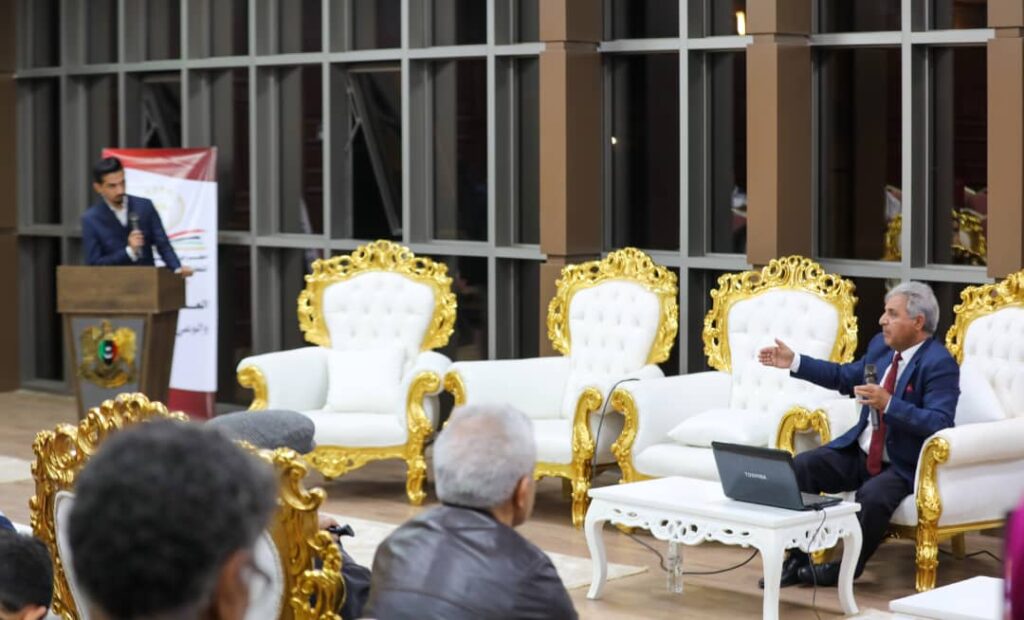Benghazi – The National Library in Benghazi, as part of the cultural program accompanying the International Book Fair, hosted a documentary lecture titled “Libyan Journalism in a Hundred Years,” presented by journalist Ibrahim Abdel Hamid.
During the lecture, attended by several journalists, writers, and those interested in the history of Libyan journalism, Abdel Hamid discussed the historical stages of the development of journalism in the city since the early twentieth century. He emphasized that Benghazi was among the first Libyan cities to embrace publishing and printing through newspapers like Al-Asr Al-Jadid and Barqa Al-Jadida, which served as platforms for enlightenment and national awareness.
The lecturer also reviewed the journey of journalism in Benghazi across different decades, noting that the post-2011 period saw a remarkable revival in local media and a diversification of youth press platforms.
The lecture included intellectual contributions from a number of attendees, during which Professor Ali Jaber called for the establishment of a national archive for old Libyan newspapers.
Meanwhile, Professor Khalid Al-Mejbari discussed the challenges of print journalism amid the digital transformation, emphasizing the importance of preparing a generation of journalists who combine professionalism with technical knowledge.
Author and writer Aisha Bazama presented a critical reading on women’s journalism in Benghazi, highlighting the contributions of female writers and journalists since the 1950s and stressing the need to document these pioneering experiences.
The meeting concluded with participants reaffirming the importance of documenting the history of Libyan journalism and preserving the city’s media memory as part of the national cultural heritage.
